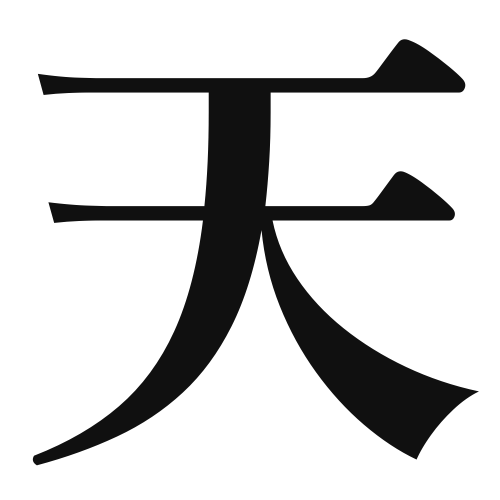1. Overview of Meaning
The kanji “天” (ten) means “heaven” or “sky.” It represents the concept of the celestial realm above the earth, often associated with divinity, nature, and the universe.
2. Formation and Radical
Formation of the Kanji: The kanji “天” is a pictogram that originally depicted the sky or heavens. It is classified as a pictographic character, as it visually represents the concept of the sky.
Radical: The radical for “天” is also “天,” which is used in various other kanji related to the sky or heaven.
3. Examples of Usage
Common Words and Phrases: Some frequently used words that include “天” are:
- 天気 (tenki) – weather
- 天国 (tengoku) – heaven, paradise
- 天才 (tensai) – genius
Example Sentences in Daily Conversation:
- 今日は天気がいいですね。 (Kyou wa tenki ga ii desu ne.) – The weather is nice today.
- 彼は天才です。 (Kare wa tensai desu.) – He is a genius.
4. Synonyms and Antonyms
Similar Kanji: A kanji with a similar meaning is “空” (sora), which means “sky.” However, “空” often refers to the physical space of the sky, while “天” has a more spiritual or divine connotation.
Antonyms: A kanji with an opposite meaning is “地” (chi), which means “earth” or “ground.” While “天” refers to the heavens, “地” refers to the physical world below.
5. Cultural and Historical Background
Relation to Japanese Culture: In Japanese culture, “天” is often associated with Shinto beliefs, where the heavens are seen as a divine realm. It also appears in various cultural references, such as festivals and religious practices.
Proverbs and Idioms: One common idiom is “天は自ら助くる者を助く” (Ten wa mizukara tasukeru mono o tasuku), which translates to “Heaven helps those who help themselves,” emphasizing the importance of self-initiative.
